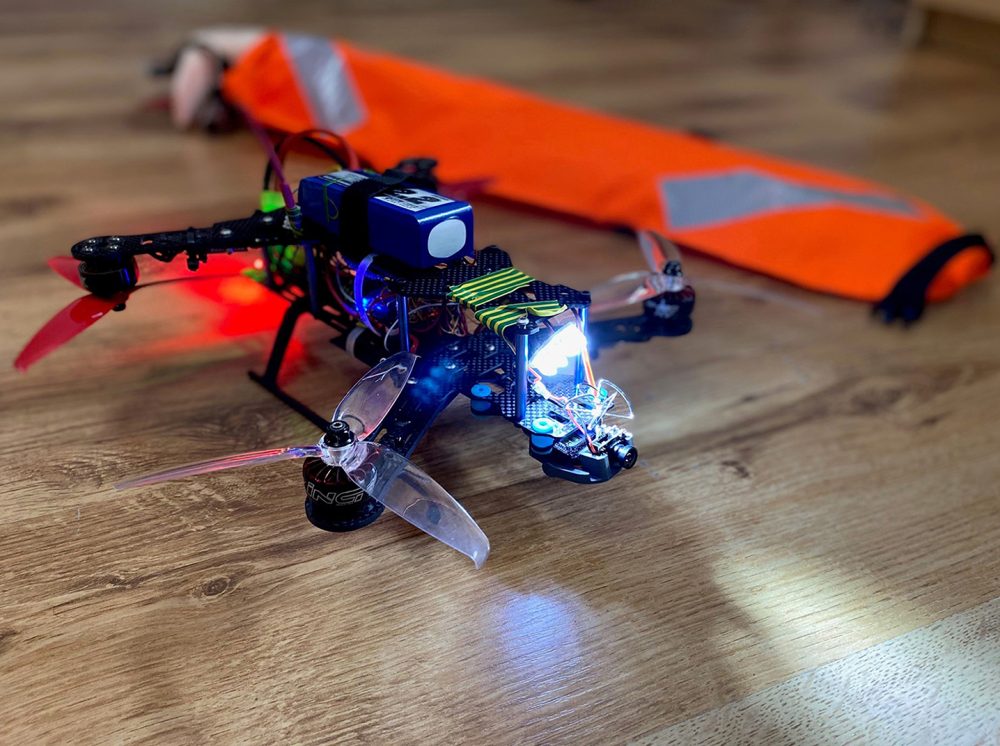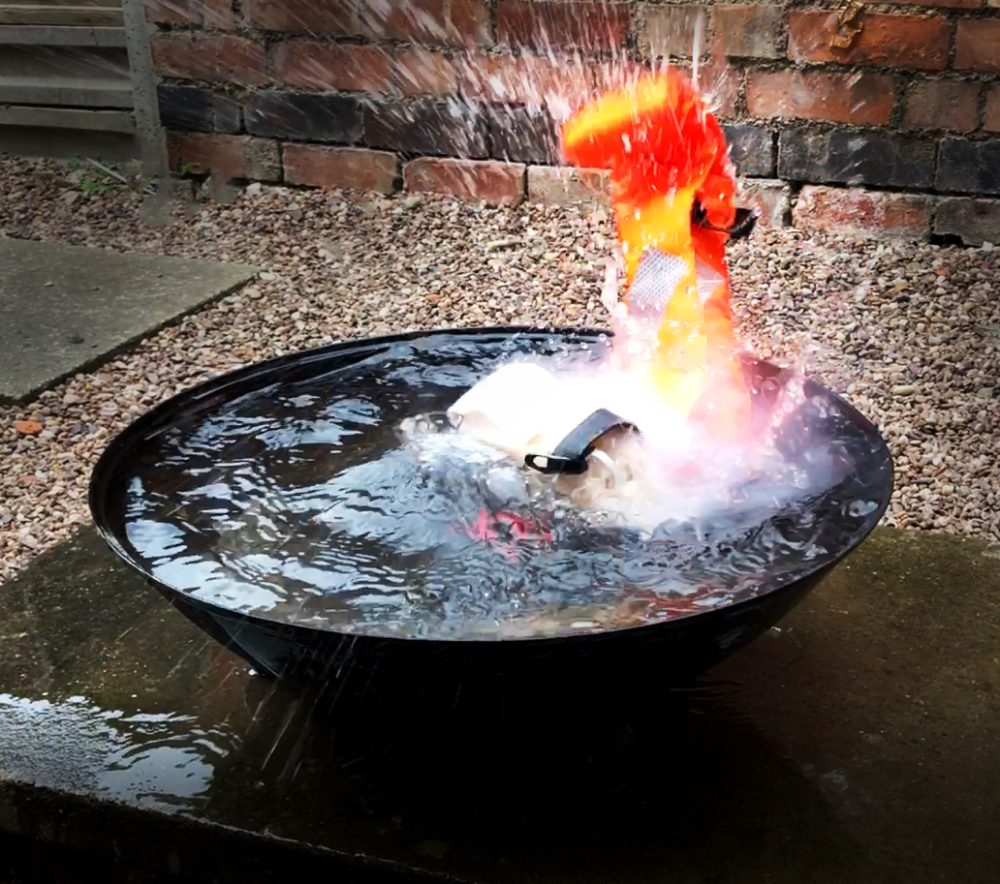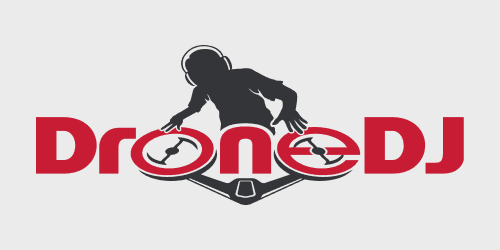
When England’s Loughborough University student Dominic Leatherland was on a beach holiday with his family in 2017, he witnessed a teenage surfer being pulled out to sea due to rough conditions. While two off-duty lifeguards heroically saved the surfer, Dominic noticed the teen didn’t have access to a flotation device for at least 35 seconds. And he found himself thinking: “Why can’t we just fly a drone over the waves and drop a flotation device with the casualty?”
So, for his final year project, the product design and technology student has taken that germ of an idea for a ride. He has designed “SERVITA” – a small, compact drone that flies above hazardous waters to locate individuals in distress and deploys a flotation aid that automatically inflates on hitting the water, helping casualties stay afloat while they wait for a rescue team to reach them.
Working prototype of beach rescue drone
And it’s not just a design. Dominic has created and tested a working prototype of the beach rescue drone too, using turbulence and velocity simulations in the developmental phase. The drone alone consists of 140 individual components, which make for an impressive exploded assembly.

SERVITA beach rescue drone prototype 
Small-scale testing
SERVITA uses technologies like a GPS sensor, a live-feed camera, and two “servo” mechanisms that allow the pilot to control the pitch angle of the camera and the inflatable-release mechanism. Dominic shares his vision for the beach rescue drone:
I picture SERVITA being used by beach lifeguards and emergency services to provide rapid support to individuals who are in aquatic distress and the time in which they can be rescued is increased by variables such as distance, sea conditions, and location, or the casualty is deteriorating rapidly.
This product is needed to help save the lives of weak swimmers where rescue cannot be performed immediately. The early intervention SERVITA can provide could be the matter of life and death for some casualties. Ultimately, the aim of the product is to preserve life and reduce the rate in which casualties deteriorate in water to reduce their injuries and impacts on health.
Read more: Drone captures teen’s heroic rescue of mom and son caught in powerful North Carolina rip current
FTC: We use income earning auto affiliate links. More.






Comments